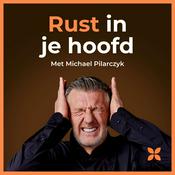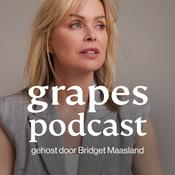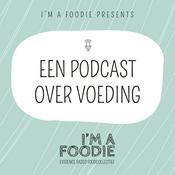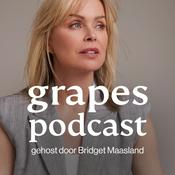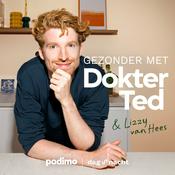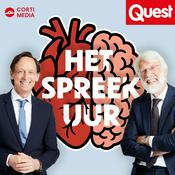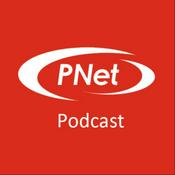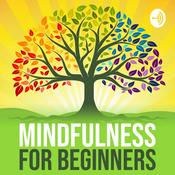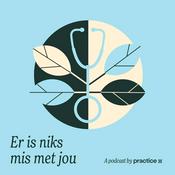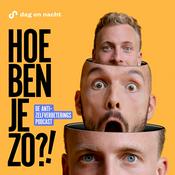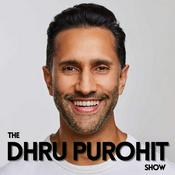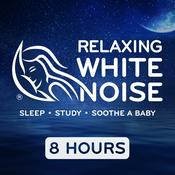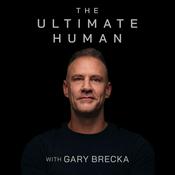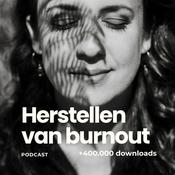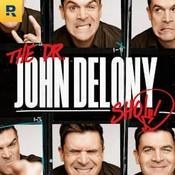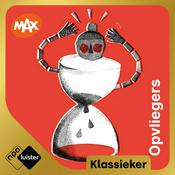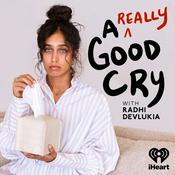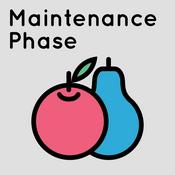432 afleveringen
#381 ‒ Alzheimer's disease in women: how hormonal transitions impact the female brain, the role of HRT, genetics, and lifestyle on risk, and emerging diagnostics and therapies | Lisa Mosconi, Ph.D.
26-1-2026 | 2 u. 6 Min.View the Show Notes Page for This Episode
Become a Member to Receive Exclusive Content
Sign Up to Receive Peter's Weekly Newsletter
Lisa Mosconi is a world-renowned neuroscientist and the director of the Women's Brain Initiative at Weill Cornell Medicine, where she studies how sex differences and hormonal transitions influence brain aging and Alzheimer's disease risk. In this episode, Lisa explores why Alzheimer's disease disproportionately affects women and why longer lifespan alone does not explain their nearly twofold risk compared to men. She explains why Alzheimer's disease may be best understood as a midlife disease for women, beginning decades before symptoms appear, and how menopause represents a fundamental brain event that reshapes brain energy use, structure, and immune signaling. The conversation also examines what advanced brain imaging reveals about preclinical Alzheimer's disease, estrogen receptors in the brain, and why genetic risks such as APOE4 appear to affect women differently from men. Finally, Lisa discusses the nuanced evidence around menopause hormone therapy, the legacy of the WHI, her new CARE Initiative to cut women's Alzheimer's risk in half by 2050, and practical, evidence-based strategies to support brain health through midlife—including lifestyle, sleep, metabolism, mood, and emerging therapies such as GLP-1 agonists and SERMs (selective estrogen receptor modulators).
We discuss:
How Lisa's personal family history and scientific background led her to focus on the intersection of women's health, brain aging, and Alzheimer's disease (AD) [2:45];
The long preclinical phase of AD and the emotional burden carried by patients before dementia becomes severe [7:15];
How AD compares to other common forms of dementia: prevalence, pathology, symptoms, diagnostic challenges, and more [10:45];
Why AD disproportionately affects women: how AD is not simply a disease of old age or longevity but a midlife disease in which women develop pathology earlier [16:15];
Menopause as a leading explanation for women's increased Alzheimer's risk, and how advanced braining imaging can detect early changes in the brain [26:15];
How a new method for imaging estrogen receptors in the brain is changing how we think about the menopause transition [35:45];
What estrogen receptor imaging can and cannot tell us about hormone therapy's potential impact on brain health [48:45];
Lisa's studies on the relationship between levels of systemic estrogen and density of estrogen receptors in the brain [58:00];
Why blood estrogen levels poorly reflect brain estrogen signaling, and how tightly regulated brain hormone dynamics complicate our understanding of menstrual-cycle and lifestyle effects [1:02:15];
The CARE Initiative: Lisa's research program looking to slash AD rates in women [1:07:45];
The dramatic difference in AD risk between men and women associated with APOE4 [1:10:45];
What the evidence suggests about menopausal hormone therapy (MHT) and AD risk, and why timing, formulation, and uterine status appear to matter [1:12:00];
How the CARE initiative plans to study MHT and AD risk, within the practical constraints of a three-year research window [1:17:30];
How to think about starting hormone therapy during perimenopause: balancing symptom relief, hormonal variability, and individualized care [1:21:00];
Investigating selective estrogen receptor modulators (SERMs) as a targeted approach to brain health during and after menopause [1:25:00];
Why estrogen became wrongly associated with cancer risk and what the evidence actually shows [1:29:30];
Why better biomarkers are central to advancing women's Alzheimer's research [1:38:30];
Modifiable risk factors for dementia, the limitations of risk models, and questionable conclusions drawn from observational data [1:44:15];
GLP-1 agonists and brain health: exploring potential neuroprotective effects of GLP-1 agonists beyond metabolic benefits [1:49:00];
The importance of lifestyle factors in reducing risk of dementia: practical strategies for women to support brain health [1:53:45];
Why long-term, consistent lifestyle habits are essential for building cognitive resilience and protecting brain health over decades [2:01:15]; and
More.
Connect With Peter on Twitter, Instagram, Facebook and YouTube#380 ‒ The seed oil debate: are they uniquely harmful relative to other dietary fats? | Layne Norton, Ph.D.
19-1-2026 | 2 u. 7 Min.View the Show Notes Page for This Episode
Become a Member to Receive Exclusive Content
Sign Up to Receive Peter's Weekly Newsletter
Layne Norton is a nutrition scientist and accomplished power athlete,who returns to The Drive for a conversation that departs from the show's usual format. In this episode, Layne presents the evidence-based case that seed oils are not uniquely harmful under isocaloric conditions, while Peter steelmans the strongest versions of the opposing argument that seed oils are inherently harmful. They examine how scientific bias and evidence are evaluated, revisit the historical randomized controlled trials that shaped the seed oil controversy, and explore the mechanistic biology underlying LDL oxidation and atherosclerosis. Along the way, Layne unpacks the chemistry and processing of modern seed oils, assesses evolutionary and ancestral nutrition arguments, clarifies the relationship between seed oils, ultra-processed foods, and contemporary dietary patterns, and situates these questions within the larger context of lifestyle factors that drive cardiometabolic health. Layne concludes by offering practical considerations around dietary fats, cooking oils, and real-world food choices.
We discuss:
The idea behind this episode, biases, and evidence-based thinking [5:15];
The four core arguments behind claims that seed oils are harmful [12:30];
The Minnesota Coronary Experiment (MCE) [14:30];
The differences among saturated, monounsaturated, polyunsaturated, and trans fats, and why those differences matter for cardiovascular disease [18:30];
Missing trans fat data as a confounder in the Minnesota Coronary Experiment, other limitations of that study, and the challenge detecting meaningful differences in hard outcomes through nutrition research [24:00];
The Sydney Diet Heart Study (SDHS): an attempt to address the "duration problem" by enrolling a much higher-risk population [28:30];
Debating whether evidence from randomized trials supports the idea that seed oils are uniquely harmful once major confounders are removed [34:00];
The Rose Corn Oil trial: an often-cited study used to argue against polyunsaturated fats [36:30];
Three studies where replacing saturated fat with polyunsaturated fat produced different results than earlier trials [41:30];
Layne's explanation for why the evidence is pointing towards cardiovascular risk reduction when substituting polyunsaturated fat for saturated fat [47:30];
What Mendelian randomization says about the causal role of LDL cholesterol in ASCVD [56:45];
The compounding effects of life-long exposure to high LDL cholesterol [1:06:45];
Does the linoleic acid (omega-6) content of seed oils cause inflammation? [1:13:45];
Does the linoleic acid (omega-6) content of seed oils increase oxidized LDL? [1:19:30];
Layne's analogy to explain why lower LDL particle number outweighs higher per-particle oxidation risk when comparing polyunsaturated fats to saturated fats [1:26:15];
The role of oxidized LDL in CVD: exploring differences in a diet high in polyunsaturated fat (seed oils) versus high in saturated fat [1:28:00];
Examining whether industrial processing and solvent extraction of seed oils—especially residual hexane—could plausibly cause long-term harm [1:34:00];
The evolutionary and "ancestral diet" argument against seed oils [1:40:45];
Weighing concerns about industrial processing of seed oils against the totality of metabolic and cardiovascular evidence [1:47:30];
Practical considerations around dietary fats, cooking oils, and real-world food choices [1:50:00];
Comparing the health impact of seed oils with that of caloric intake and activity levels, and how to prioritize interventions [2:00:15];
More.
Connect With Peter on Twitter, Instagram, Facebook and YouTube#379 - AMA #79: A guide to cardiorespiratory training at any fitness level to improve healthspan, lifespan, and long-term independence
12-1-2026 | 38 Min.View the Show Notes Page for This Episode
Become a Member to Receive Exclusive Content
Sign Up to Receive Peter's Weekly Newsletter
In this "Ask Me Anything" (AMA) episode, Peter brings together his most up-to-date thinking on cardiorespiratory fitness into a single, practical guide designed to help listeners structure training for maximal impact on healthspan, lifespan, and long-term independence. He explains why cardiorespiratory fitness is one of the strongest modifiable predictors of longevity, clarifies what zone 2 training actually represents and how it differs from higher-intensity work, and addresses persistent confusion around exercise volume, intensity, and time constraints. The discussion covers how to measure and track progress in zone 2, VO₂ max targets and age-adjusted goals, planning for the marginal decade, and how to balance zone 2 with higher-intensity training across different weekly volumes. Peter also outlines how cardio training should be tailored for beginners, experienced trainees, and older adults, with special considerations for women and guidance on avoiding the most common cardio-training mistakes.
If you're not a subscriber and are listening on a podcast player, you'll only be able to hear a preview of the AMA. If you're a subscriber, you can now listen to this full episode on your private RSS feed or our website at the AMA #79 show notes page. If you are not a subscriber, you can learn more about the subscriber benefits here.
We discuss:
Rational for discussing cardiorespiratory fitness, zone 2, and VO₂ max despite having covered the topic extensively [2:30];
Why cardiorespiratory fitness and VO₂ max are powerful and modifiable predictors of all-cause mortality compared with other health metrics [7:30];
How age-related declines in VO₂ max constrain healthspan and everyday physical function [12:30];
The cardiorespiratory fitness triangle: how different training intensities contribute to building the aerobic base, the aerobic peak, and overall aerobic capacity [14:15];
The cellular mechanics of cardiorespiratory fitness: mitochondria, lactate, muscle fiber recruitment, and intensity thresholds [18:45];
The debate over whether zone 2 training has unique benefits or whether higher-intensity exercise alone is sufficient [27:15];
Balancing intensity and sustainability as training volume increases, and the important role of zone 2 training [32:15];
How to identify your zone 2 training intensity [34:45];
How to measure and track improvements in zone 2 fitness [40:00];
How to accurately measure VO₂ max: lab testing, field tests, and the limits of wearables [45:15];
How to set meaningful VO₂ max targets based on age, sex, long-term decline, and desired physical capabilities later in life [51:15];
How to structure and execute a zone 2 workout [59:45];
How strictly should zone 2 be maintained during a workout? [1:04:00];
How to design a VO₂ max training session: interval length, intensity, recovery, and progression strategies [1:07:00];
Why heart rate is not a reliable metric for titrating VO₂ max interval intensity [1:12:00];
Practical ways to monitor VO₂ max improvements [1:13:30];
How to balance zone 2 and VO₂ max training [1:15:30];
How to structure training for someone limited to 150 minutes per week of total exercise [1:19:00];
How to allocate 150 minutes per week of dedicated cardiorespiratory training between zone 2 and VO₂ max work [1:23:00];
How to structure training for someone with substantial available time who wants to maximize cardiorespiratory fitness [1:24:30];
Why spreading aerobic training across the week beats compressing volume into one session [1:26:15];
How beginners and metabolically unhealthy individuals should start cardiorespiratory training safely [1:28:00];
How "training age" determines the intensity and workload needed to continue improving cardiorespiratory fitness [1:31:15];
Why zone 2 training still matters for women (including postmenopausal women) [1:32:45];
How cardiorespiratory training should adapt with aging [1:35:45];
The most common mistakes people make when training cardiorespiratory fitness and how to avoid them [1:37:45];
How to break through a VO₂ max plateau [1:40:45];
The main takeaways about cardiorespiratory fitness and longevity [1:41:30];
Peter's carve out: oral hygiene and Peter's two-toothbrush system [1:43:00]; and
More.
Connect With Peter on Twitter, Instagram, Facebook and YouTube#378 ‒ Women's health and performance: how training, nutrition, and hormones interact across life stages | Abbie Smith-Ryan, Ph.D.
05-1-2026 | 2 u. 11 Min.View the Show Notes Page for This Episode
Become a Member to Receive Exclusive Content
Sign Up to Receive Peter's Weekly Newsletter
Abbie Smith-Ryan is a leading researcher in exercise physiology whose work focuses on how training and nutrition influence body composition, metabolism, cardiovascular health, and women's health across the lifespan, with particular attention on perimenopause and post-menopause. In this episode, Abbie explains how early exercise and play help build the foundation for bone health, muscle development, and cardiorespiratory fitness in girls, as well as how puberty and menstruation shape athletic performance, motivation, and recovery. She also explores how women can tailor training and nutrition across the menstrual cycle through smart fueling, hydration, and inflammation management; examines the evidence behind supplements such as creatine, omega-3s, and magnesium; and unpacks the metabolic and body composition changes that accompany the transition into perimenopause and menopause. Finally, she covers practical exercise programming for busy women, training and nutrition considerations during pregnancy and postpartum, and the evolving role of hormone therapy alongside lifestyle-based, evidence-driven approaches that help women better advocate for their health.
We discuss:
Abbie's background in distance running and her interest in studying women's health around exercise [3:00];
The role of early-life exercise in building lifelong bone, muscle, and cardiovascular health in girls [4:00];
Training principles for premenstrual girls, the risks of early specialization and delayed puberty from intense training, and how youth sport participation can shape bone and spinal health [7:15];
Nutrition as fuel in young female athletes: supporting training, growth, and performance [11:00];
Training and recovery across the menstrual cycle: recovery, nutrition, supplements, and practical strategies for performance support [16:00];
The benefits of creatine supplementation and importance of protein intake across the menstrual cycle [27:15];
How women should approach training intensity and volume across the menstrual cycle [33:00];
How to identify and monitor the perimenopausal transition and why this phase represents a critical window for exercise and nutrition interventions [37:15];
Case study: time-efficient exercise program for a busy, perimenopausal woman [42:00];
Why improving body composition is a better goal than weight loss, and how to set realistic fat-loss targets in midlife women [53:30];
How to preserve muscle and bone while using GLP-1 medications: resistance training, protein intake, and more [58:15];
Designing a three-hour-per-week training plan for sustainable body recomposition [1:03:30];
Abbie's insights from her 20+ years of self-tracking: nutrient timing, injury prevention, excessive training, bone health, and more [1:07:15];
How pregnancy and the postpartum period affect body composition, and how consistent exercise and intentional nutrition can prevent a permanent shift in body fat or muscle mass [1:13:30];
Changes in muscle quality and metabolic flexibility during perimenopause and menopause, and how exercise may counteract hormonally driven sarcopenia [1:21:45];
The biggest open questions about women's health: combining menopause hormone therapy with exercise, GLP-1 drugs, minimizing injury risk, and more [1:32:00];
How the training response differs between men and women, and the importance of type IIa muscle fibers [1:39:15];
Training advice for the hypothetical 70-year-old woman who has never exercised deliberately [1:47:00];
Misinformation about exercise and nutrition for women, injury risk, supplement hype, and the need for more nuanced messaging around hormones, recovery, and midlife training [1:53:30];
Benefits of hormone therapy in midlife women and its interaction with exercise and lifestyle interventions [2:00:15];
Peter's overall take on how women should approach exercise volume and intensity at various life phases and time constraints [2:03:00]; and
More.
Connect With Peter on Twitter, Instagram, Facebook and YouTube- View the Show Notes Page for This Episode
Become a Member to Receive Exclusive Content
Sign Up to Receive Peter's Weekly Newsletter
James Clear is the author of the New York Times bestseller Atomic Habits. His extensive research into human behavior has helped him identify key components of habit formation and develop the "Four Laws of Behavioral Change." In this episode, James provides insights into how both good and bad habits are formed, including the influence of genetics, environment, social circles, and more. He points to changes one can make to cultivate more perseverance and discipline and describes the profound impact habits can have when tying them into one's self-identity. Finally, James breaks down his "Four Laws of Behavioral Change" and how to use them to create new habits, undo bad habits, and make meaningful changes in one's life.
We discuss:
Why James became deeply interested in habits [1:45];
Viewing habits through an evolutionary lens [6:00];
The power of immediate feedback for behavior change, and why we tend to repeat bad habits [9:15];
The role of genetics and innate predispositions in determining one's work ethic and success in a given discipline [14:30];
How finding one's passion can cultivate perseverance and discipline [23:15];
Advantages of creating systems and not just setting goals [29:15];
The power of habits combined with self-identity to induce change [36:30];
How a big environmental change or life event can bring on radical behavioral change [50:30];
The influence of one's social environment on their habits [54:15];
How and why habits are formed [1:00:30];
How to make or break a habit with the "Four Laws of Behavior Change" [1:09:30];
Practical tips for successful behavioral change—the best strategies when starting out [1:16:15];
Self-forgiveness and getting back on track immediately after slipping up [1:30:30];
Law #1: Make it obvious—Strategies for identifying and creating cues to make and break habits [1:39:45];
Law #2: Make it attractive—examples of ways to make a new behavior more attractive [1:47:45];
Law #3: Make it easy—the 2-minute rule [1:58:45];
Law #4: Make it satisfying—rewards and reinforcement [2:03:30];
Advice for helping others to make behavioral changes [2:06:00];
More.
Connect With Peter on Twitter, Instagram, Facebook and YouTube
Meer Gezondheid en fitness podcasts
Trending Gezondheid en fitness -podcasts
Over The Peter Attia Drive
Expert insight on health, performance, longevity, critical thinking, and pursuing excellence. Dr. Peter Attia (Stanford/Hopkins/NIH-trained MD) talks with leaders in their fields.
Podcast websiteLuister naar The Peter Attia Drive, Rust in je hoofd en vele andere podcasts van over de hele wereld met de radio.net-app
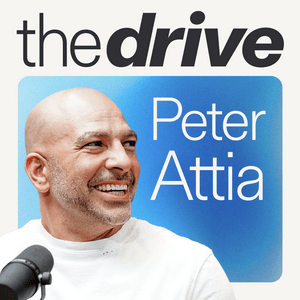
Ontvang de gratis radio.net app
- Zenders en podcasts om te bookmarken
- Streamen via Wi-Fi of Bluetooth
- Ondersteunt Carplay & Android Auto
- Veel andere app-functies
Ontvang de gratis radio.net app
- Zenders en podcasts om te bookmarken
- Streamen via Wi-Fi of Bluetooth
- Ondersteunt Carplay & Android Auto
- Veel andere app-functies


The Peter Attia Drive
Scan de code,
download de app,
luisteren.
download de app,
luisteren.


